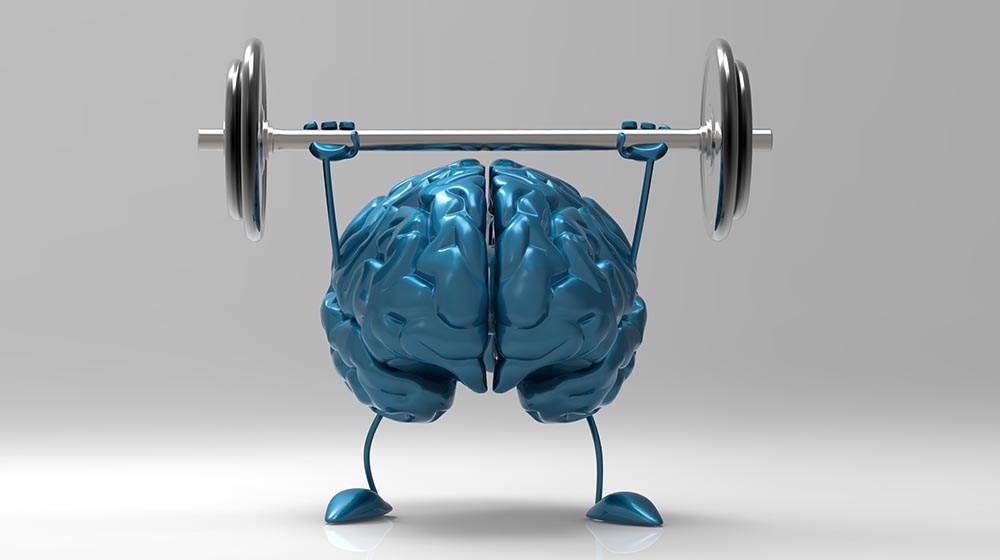In recent years, mental health has become an increasingly prevalent topic of discussion, with more people recognizing the importance of taking care of their mental wellbeing. There is more awareness surrounding the ways one can boost their mental health. Therapy, journaling, mindfulness, healthy eating are few of many ways touted to be an effective remedy for declining mental health. While there are many strategies for promoting mental health, one that is often overlooked is exercise. You already know the benefits of exercise on the body, but it also has a profound impact on boosting mental health.
Exercising tends to offer an enormous sense of wellbeing for those who actively do so. It enables you to feel more energetic, sleep better, be more relaxed and even alters your mindset positively towards yourself and your life. Exercise can be a powerful tool to deal with mental health problems. That being said, exercising at home can also have a range of psychological benefits that can help improve mental health, improve your energy and outlook, and get more out of life. In this article, let’s learn how working out at a home gym can not only make you fit, but also offer numerous psychological benefits for a better state of mind.
Home Gym: The Key to a Fit Body and Mind

1. Reduces Stress and Anxiety
One of the primary psychological benefits of exercising at home is that it can help reduce stress and anxiety. Exercise, in of it itself, has been shown to increase the production of endorphins, which are chemicals in the brain that help improve mood and reduce feelings of stress and anxiety. However, people who struggle with social anxiety can face discomfort at a commercial gym. Many aspects of a typical gym or a specific exercise routine can be intimidating enough for an average person. And those with social anxiety will experience far more difficulty getting through their routine in such an environment without being triggered.
By exercising at home, you can create a safe and comfortable environment where you can work out without distractions or pressures of a gym, while giving your mind and body utmost wellness. When you feel comfortable and relaxed in your suitable setting, you will be more likely to enjoy your workout and feel less stressed and anxious. Additionally, exercising at home can elicit a sense of control over your workout routine that best fits your lifestyle and preference. This sense of control can also help reduce feelings of stress and anxiety and enhance your workout experience.
2. Improves Self-Esteem and Body Image
Another psychological benefit of exercising at home is that in can help improve your self-esteem and body image. Many people feel self-conscious about their body or fitness level, and exercising at home can provide them with the private space to exercise without the fear of judgment or comparison with others. They can focus on their personal goals and progress, without feeling pressured by their peers. This can help improve their body image and allow them to feel comfortable in their own skin. As people progress in their fitness journey and see improvements in their physical abilities and appearance, they often feel more confident and empowered.
Additionally, exercising often makes people more confident and prouder of their accomplishments, which can lead to an increased self-esteem. Working out at home can encourage self-compassion, which can also help in improving self-esteem and body image. When you focus on your goals and progress, you can learn to be kinder to yourself and appreciate your unique set of strengths and abilities. Moreover, when you have your personalized fitness routine at home, it can lead to a sense of empowerment and improved self-esteem, thereby boosting your overall mental health.
3. Enhances Cognitive Function
Exercising at home can also have cognitive benefits. Regular exercise improves memory, focus, and cognitive function. Exercise increases blood flow and oxygen to the brain, which can help improve memory, attention, processing speed, and overall brain function. Additionally, exercising at home can also allow people to create a routine and structure for their, which can help improve their time management and productivity. Being organized and structured through the day can help bring balance into your life and boost your mental health.
Exercising helps reducing inflammation and oxidative stress, promotes neuroplasticity, and promotes better sleep. All of these factors contribute to an enhanced cognitive function. By incorporating regular exercise into your routine at the comfort of your home, you can boost your cognitive performance, protect against age-related cognitive decline, and promote overall wellbeing.
4. Promotes Social Connection
Although exercising at home may seem isolating, it can actually promote social connection. By working out with a partner or joining an online fitness community, you can still feel connected and supported while exercising at home. Many people now participate in virtual workout classes from the comfort of their own homes. These classes are often led by instructors who engage with participants in real-time, creating a sense of community and shared experience. You can also invite people whose company you enjoy and exercise together. Social connection is important for mental health, as it can help reduce feelings of loneliness and depression.
5. Boosts Mood and Energy
Finally, exercising at home can help boost mood and energy levels. When people exercise, they often feel more energized and alert, which can help improve mood and productivity throughout the day. Exercising releases endorphins, which are hormones that promote the feeling of happiness and euphoria. This can help boost mood and reduce the symptoms of stress and anxiety.
Additionally, regular exercise can increase energy levels and reduce fatigue. This is because exercise improves blood circulation, which helps to deliver more oxygen and nutrients to the muscles and other tissues in the body. Lastly, exercising at your home, as per your own goals, you will feel a sense of pride and accomplishment which will inevitably boost your mood as well.
In conclusion, exercising at home can have a range of psychological benefits for mental health. By reducing stress and anxiety, improving self-esteem and body image, enhancing cognitive function, promoting social connection, and boosting mood and energy levels, exercising at home can be an effective strategy for improving mental well-being.
So, if you’re looking to improve your mental health and being fit, consider setting up a home gym and incorporating regular exercise into your routine with QNET’s MyHomePlus HomeGym. The state-of-the-art gym equipment enables you to perform 15 different exercises that target every muscle and various parts of your body, allowing you to become fit from the comfort of your home. The robust design has 5 unique features that ameliorate your fitness routine. So, whether you want to achieve your ideal body, enhance your mental health or improve your overall wellbeing, investing in a home gym can be your ticket to a much healthier and fit lifestyle.

To know more about MyHomePlus HomeGym, visit the QNET e-store today!





